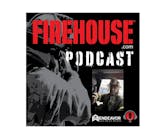My friends, I believe it is time to attempt once again to rally you all to battle for a better fire service. It is, I believe, a noble intention, one that we all should pursue.
After years of seemingly shoveling sand against the tide, I am coming to a conclusion that should have struck me quite some time ago.
All-knowing, not
A great many people who are among us like the way that things are done right now. Right, wrong or indifferent, they see no reason to change. More than that, these folks simply detest people, such as I, who seek to drag them kicking and screaming into the midpoint of this, the 21st century.
Far too many folks in the fire service run their fire departments as if the departments are a good-old-boys clubhouse from the 1920s. Their motto is simple and to the point: You can’t tell me what to do. If you think you can, you are quite mistaken indeed.
Let us take a moment to look back in time to one of my favorite comedy groups. This whole you-can’t-tell-me-what-to-do thing kind of reminds me of the He-Man Woman Hater’s Club from the Our Gang comedies. The key purpose of the club that Spanky and other boys formed was to come together around the simple act of not liking girls.
Hmm. Might that name not apply to some of our fire departments even in the year 2020? The members of these clubs work hard to maintain all things as they were.
Several people suggested this to me over time. I am not sure whether I failed to believe them or simply felt that the fire service was better than that. I want to issue a blanket apology to each and every one of you who provided this advice. Indeed, there are parts of the fire service that refuse to operate according to our most up-to-date procedures, methods and operational policies.
One of the primary people who shared this thought with me is my old U.S. Air Force buddy, John Harris, from Tennessee. John and I often were perceived as a bit screwy by our buddies at the air base in Alaska where we served. He and I thought that there was a lot more to the business of fire protection than was to be found within the training manuals and practices of our fire service supervisors.
As you might imagine, he and I often got into trouble. In a military environment, thinking often is regarded as a hindrance to operations. We also suffered an inordinate amount of personal abuse from fellow firefighters. Perhaps that was the point in our life when our hide started to toughen a bit.
However, this didn’t stop us from pursuing knowledge in places beyond the fire station. As I look back on this time in my life, I believe that perhaps this was my first interaction with one form of the good-old-boy’s syndrome. We observed things, asked questions, and offered thoughts and suggestions. In most cases, they were as welcome to our bosses as a pay toilet is in a diarrhea ward.
I believe that these people might have suffered from what John calls the four-walls disease. As soon as they step inside of the four walls that constitute the station, they suddenly believe themselves to be in possession of all the necessary knowledge in the world. Is this what you see?
Lead, for change
Recently, my consulting and speaking engagements took me to a number of places where this good-old-boy nonsense combines with an even worse organizational disease. That malady caused entire empires to crumble over time throughout recorded history. That disease is called apathy. In some places, it goes by another name: complacency.
People in these places can be heard to mutter such drivel as:
Why change? Things are OK.
I’ll do the minimum because that is all I am being asked to do.
You can’t make me do that.
If you make me do that, I will quit, and then where will you be?
Those who are familiar with my work will remember that I am a proactively people-oriented person. It is my practice to work with people whenever and wherever possible. I have even been criticized for not being willing to punish people at the first hint of a problem.
Perhaps to get to the root of this problem, we need to be more like a proactive hemorrhoid in a world that lacks Preparation H. We need to become that bothersome obstacle to unnecessary rectal-cranial inversions. We need to provide people with the opportunity to get their head out of their butt.
Apathy has been defined as a lack of feeling, emotion, interest or concern about something of great importance. Apathy is a state of indifference, or the suppression of emotions, such as concern, excitement, motivation or passion. An apathetic individual has an absence of interest in or concern about emotional, social, spiritual, philosophical, or physical life and the world.
It has been my experience that change in places such as these is difficult. It also has been my experience that change can come through the sincere, dedicated efforts of a well-motivated and caring leader. The leader must come to know and understand each member of his/her team. It is through this knowing and understanding that a leader can identify the reasons for why people act as they do.
There is no one-size-fits-all approach. Each person has his/her reasons. It is up to the leader to identify and address those reasons and the problems that they cause.
Perhaps most importantly of all, the leader must truly lead by example. All of the actions that a leader wishes to see in his/her people must be clearly and effectively demonstrated for the people to see.
It is important for me to stress that the leader never should let things slide. When things don’t go as required by the leader, the appropriate steps should be taken to allow the troops to see what the leader wants and why they should comply.
In 1950, American novelist John Dos Passos wrote, “Apathy is one of the characteristic responses of any living organism when it is subjected to stimuli too intense or too complicated to cope with. The cure for apathy is comprehension.” Let me suggest that it is your job as a leader to ensure that the appropriate things to comprehend are provided to the people with whom you have been entrusted.
Let me urge you to start on this journey today. Make no excuses. Don’t blame others. Just mount your horse, draw your sword and charge to the sound of the guns.

Dr. Harry Carter
HARRY R. CARTER, Ph.D., who is a Firehouse contributing editor, is a fire protection consultant based in Adelphia, NJ. He is chairman of the Board of Commissioners in Howell Township Fire District 2 and retired from the Newark, NJ, Fire Department as a battalion commander. Carter has been a member of the Adelphia Fire Company since 1971, serving as chief in 1991. He is a life member and past president of the International Society of Fire Service Instructors and life member of the NFPA. He is the immediate past president of the U.S. branch of the Institution of Fire Engineers (IFE) of Great Britain. Carter holds a Ph.D. in organization and management from Capella University in Minneapolis, MN.
Connect with Harry:
Email: [email protected]






